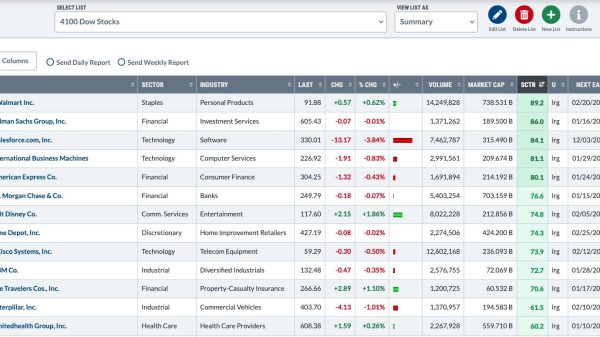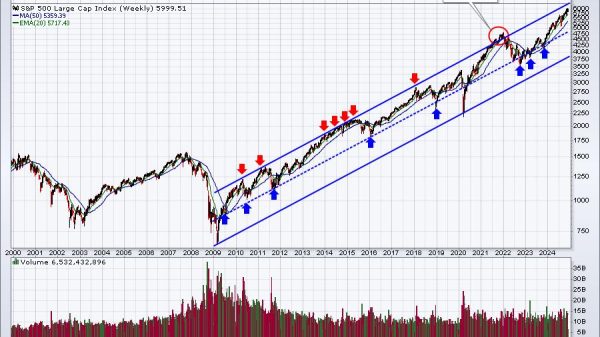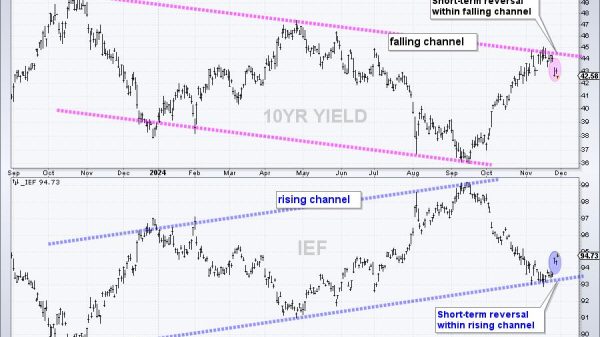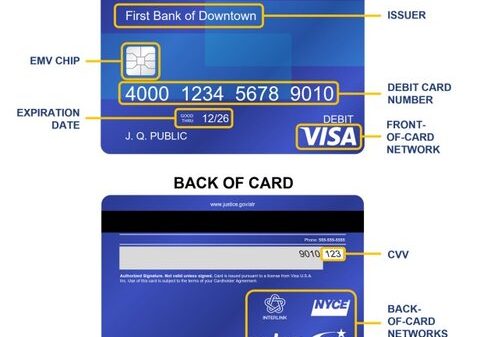British car manufacturers are to be given a three-year reprieve from Brexit tariffs on electric vehicle exports to the EU, hours after new figures showed sales of battery-powered vehicles fell by almost a fifth last month.
The European Commission signalled yesterday that it would delay imposing a 10 per cent tax on the exports of vehicles with batteries made outside the UK, even if the rest of the vehicle has been manufactured domestically.
The commission had been warned that the so-called rules of origin tariff, due to come into effect next month, would have damaged the industry on both sides of the Channel.
The commission had insisted that it was not prepared to alter the terms of the Brexit trade deal struck in 2020, which exempted electric vehicles from the tax for three years. It said that extending the exemption would reduce incentives for battery makers to invest in the bloc.
But under the new deal, which is expected to be signed by the commission today, the exemption will be extended for another three years. It will have to be ratified by member states.
The Society of Motor Manufacturers and Traders said that last month, for the first time since zero-emission cars went mainstream, the number of registrations of new electric cars fell.
The 17 per cent drop followed a reversal of policy by Rishi Sunak in an announcement at the end of September. He said the proposed ban on the sale of new petrol and diesel cars from 2030 would be delayed until 2035.
Monthly data show that 24,300 battery electric cars were sold last month. That compares with 29,300 in the same month last year. The last time electric car sales fell was during the industry dislocation and closure of dealerships in April 2020, the first full month after the Covid lockdown was enforced.
The latest figures show that battery electric cars make up 15 per cent of new sales, compared with 20 per cent a year ago. Their sales had been growing at 34 per cent year on year.
Analysis of the November data shows how few electric cars are being bought by individuals. Of the electric cars registered, more than 77 per cent were acquired as company cars or went into business fleets, meaning only 5,500 were bought by private buyers.
There are tax incentives for company car buyers and fleet operators but the government has scrapped financial incentives for private buyers.
Many have been put off by the capital cost of buying an electric car, which is typically at least 50 per cent more than buying an equivalent petrol model; the fact that they cannot travel as far on a single charge as on a full tank of petrol; the lack of public recharging infrastructure; and the differential in the price of electricity at such chargepoints compared with the cost of recharging at home.
Trade sources said the year-on-year numbers had been skewed by a sharp fall in the number of Tesla vehicles coming to Britain for sale.
In November last year Tesla, which makes its cars in China and the United States, sold 6,000 cars in the UK. This November that figure fell sharply to 1,600.
Despite signalling that motorists do not need to make a change until 2035, ministers have confirmed that they intend to enforce a zero-emission vehicle (ZEV) mandate on manufacturers from January 1. The ZEV mandate means that many manufacturers will have to pay financial penalties of 22 per cent if their new car sales are not zero emissions in 2024. That 22 per cent threshold is due to rise in subsequent years.
Ian Plummer, commercial director at Auto Trader, the online buying and selling platform, said the market in new electric cars had been plagued by fear, uncertainty and doubt. He added: “November’s drop in electric vehicle sales is a sign of what’s to come if the government doesn’t support the industry in making the transition by incentivising consumers on this journey.”
Mike Hawes, chief executive of the SMMT, said: “Private electric vehicle buyers need incentives in line with those that have so successfully driven business uptake.”
Total new car registrations last month were up 9.5 per cent at 156,500, taking the total for the year to date to 1.76 million, a rise of nearly 19 per cent on last year. That takes the new car market pretty much back to pre-pandemic levels.
However, the cost of living constraints on consumers are still taking a toll. Private buyers account for 44 per cent of the total market, down from more than 51 per cent a year ago.
Read more:
British car manufacturers given three-year reprieve from Brexit tariffs on electric vehicle EU exports
























